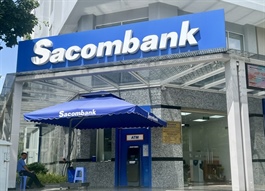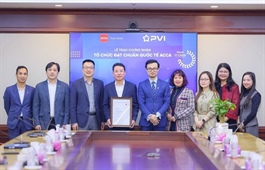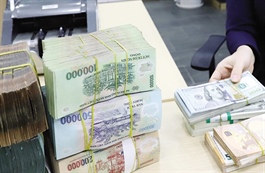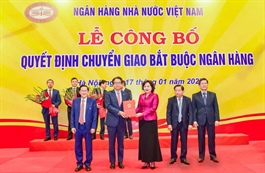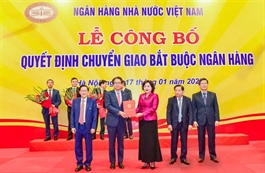Feed groups call for tax alignment
Feed groups call for tax alignment
Several animal feed businesses are concerned about financial burdens due to inconsistency in applying import tariff incentives on new soybean meal for animal feed.
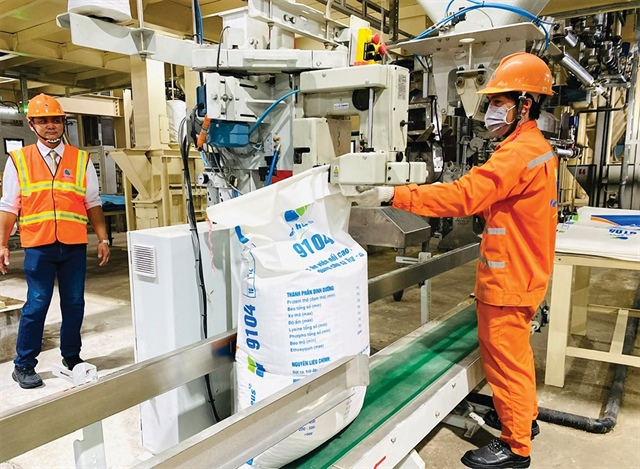
Prices of soybean meal have climbed consistently in recent times due to epidemics and weather conditions, photo Le Toan |
A group of 15 animal feed businesses and the Dong Nai Livestock Association have submitted an urgent petition to the government, the Ministry of Finance, and the Ministry of Agriculture and Rural Development to express concern regarding challenges tied to the classification codes.
“When Decree No.144/2024/ND-CP was issued in November, the preferential import tax rate for soybean meal classified under code 23040090 was reduced from 2 to 1 per cent. However, since the decree came into effect, businesses have been unable to access the new mechanism,” said Nguyen Tri Cong, chairman of the Dong Nai Livestock Association. “Since early December, customs offices in Ho Chi Minh City and Ba Ria-Vung Tau have been applying a different tariff classification code, 23040029, at the previous 2 per cent rate.”
The new rate was being processed through the General Department of Customs VNACC/VCIS system and the Plant Protection Department’s specialised inspection registration system. The sudden change in classification has caused delays in customs clearance and additional costs for businesses.
Dao Thu Huong, deputy director of the Import and Export Tax Department under the General Department of Customs, managed by the Ministry of Finance, told local media that soybean meal has many different forms.
“In Decree 144, the new code is for soybean oil meal used as animal feed in the form of fine powder, pellets, bars, and blocks, currently subject to a tax rate of 1 per cent. Meanwhile, the 23040029 code is just for raw powder, currently subject to a 2 per cent rate,” Huong said. “Enterprises importing raw powder are not yet entitled to the 1 per cent rate, which means that local customs agencies comply with the regulations.”
A representative of a Netherlands livestock company told VIR, “The inconsistency in import tariff incentives for soybean meal is unreasonable. In addition, these materials’ prices have consistently climbed to high levels due to the effect of global epidemics, weather, and geopolitical issues.”
For example, global and domestic prices for soybean meal have surged by over 12 per cent within just two weeks due to supply demand fluctuations. Meanwhile, soybean meal is the primary source of vegetable protein in animal nutrition, and it is used to make aquatic bran and pig bran.
“Thus, the high costs not only cause a financial burden for manufacturers and farmers, but also have had a direct impact on cattle pricing, leading to affect the people’s consumption,” the representative said.
Currently, Vietnam is the third-largest importer of soybean meal and the ninth-largest importer of soybeans in the world. In the past 10 years, the country has consumed an average of nearly two million tonnes of these products each year.
Vietnam’s soybean imports in January-November last year reached nearly 1.98 million tonnes, up 19.6 per cent in volume compared to the same period. Brazil was the largest market supplying soybeans to Vietnam in the period, accounting for 54.3 per cent of the total volume. The runner-up is the US with a total volume of 713,735 tonnes, followed by Canada with over 116,000 tonnes and Cambodia with nearly 16,000 tonnes.
The tax rate discrepancy also creates competitive disadvantages for Vietnam’s businesses. Exporters from free trade agreement (FTA) countries like India and ASEAN enjoy a zero import tax rate, while imports from non-FTA countries such as the US, Argentina, and Brazil face higher tariffs. This limits Vietnamese businesses’ ability to source soybean meal from more stable and higher-quality suppliers outside FTA countries.
“To address these challenges, industry representatives have proposed reducing the import tax rate for all soybean meal to 1 per cent. Additionally, they urge the government to retroactively refund the overpaid import taxes for soybean meal shipments made since December 16, 2024, under Decree 144,” the business group noted in the letter submitted to the government.









